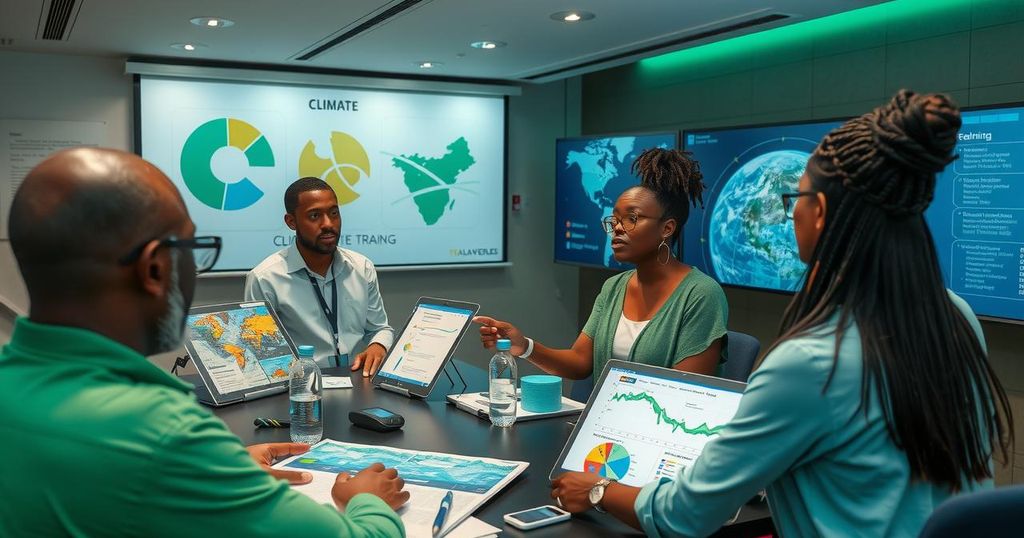The upcoming presidential election carries significant implications for Kansas’s environment, especially concerning climate change. While voter concerns include various social and economic issues, the urgency of addressing climate change emerges as a critical factor. Despite stark political differences on environmental policy, the future habitability of our planet hangs in the balance, according to experts in climate science. Voters must weigh these critical environmental concerns as they prepare to cast their ballots, knowing that the election’s result will significantly influence the trajectory of climate action in Kansas and beyond.
The current presidential election carries monumental implications for the environment in Kansas, particularly with respect to climate change. As evidenced by the ongoing environmental changes, the impacts of climate events such as severe drought, flooding, and intensified storms have become increasingly tangible. Not far from the voices of candidates and campaign themes, the need for action against climate change resonates deeply among voters. Despite other pressing issues dominating the discourse, including immigration and economic instability, the looming threat of climate change cannot be dismissed. The condition of the Little Caney River in southeast Kansas, which has become a dry bed, underscores these environmental challenges and the necessity for a reliable water supply in the region, leading to proposals such as a new pipeline initiative. In my two-year involvement with a local documentary focused on climate change, I have engaged with experts in the field, such as Doug Kluck, the regional climate services director for the National Oceanic and Atmospheric Administration. His insights have confirmed that we are trending towards more frequent and severe weather events, exacerbated by climate change. This backdrop sets the stage for the controversial stance of the Republican presidential candidate, who has dismissed climate scientists as alarmists and advocated for increased fossil fuel extraction as a means of economic support. If elected, such a policy could significantly reverse progress on climate action, particularly as we confront historical temperature highs and devastating storms. Conversely, the Democratic candidate has attracted criticism for insufficient details concerning her climate policies despite her substantial contribution to past legislative efforts like the Inflation Reduction Act. Consequently, the stakes of this election extend beyond immediate political outcomes; they encompass the future habitability of our planet. According to the American Institute of Biological Sciences, we face a major crisis concerning climate-related disasters, necessitating decisive action to alleviate human suffering and protect the natural world. In conclusion, the upcoming election will not only determine the direction of national policies but will significantly influence the environmental landscape in Kansas and beyond. With the increasing frequency of climate disasters, voters must weigh these implications seriously as they cast their ballots. The future of life on Earth profoundly hinges upon this decision, accentuating the urgency of climate action in the face of political expediency.
The article highlights the intersection of climate change and the political landscape surrounding the upcoming presidential election in the United States. It outlines the concerns of citizens in Kansas regarding environmental degradation, as exemplified by the drying up of local water sources like the Little Caney River and the broader implications of climate change on natural disasters. In addition, it addresses the conflicting messaging from presidential candidates regarding climate policy and the need for urgent action to avert irreversible damage to the environment. Scientific data presented supports the idea that climate change is already triggering severe weather events and will continue to pose risks to future generations.
The election’s outcome has far-reaching implications for both national policies and the future of the environment. With evidence indicating that climate change is intensifying and causing significant natural disasters, it is vital for voters to consider the long-term consequences of their choices in this election. The path forward will require a commitment to climate action and sustainable practices to ensure a livable world for future generations.
Original Source: kansasreflector.com




